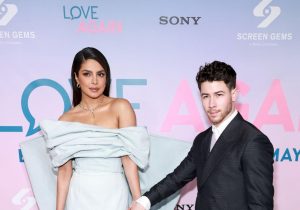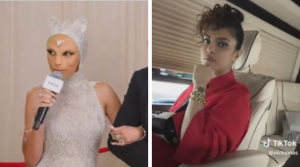Critically acclaimed director Shonali Bose is a storyteller
with a difference. From winning a National Film Award for ‘Amu’ that dealt with
the 1984 anti-Sikh Riot, to showing the real-life story of her sister who is
suffering from cerebral palsy in ‘Margarita with a Straw’ starring Kalki Koechlin, to presenting
Priyanka Chopra in a never seen before role in ‘The Sky is Pink’, Bose’s strong
narratives got acclaim at International film festivals.
However, working on projects that are not considered
mainstream, was not an easy ride for the filmmaker.
“The journey of making all three of my films – ‘Amu’, ‘Margarita
with a Straw’ and ‘The Sky is Pink’ — is actually equally tortuous and
oppressive and incredibly hard because all three films were on tough subjects,”
Bose told Opoyi.
She is one of the key speakers at the National Ability Summit to be
spearheaded by Varija Life, a Not for Profit Organisation under the fashion and
lifestyle brand Varija Bajaj on December 2 and 3. The event will see acclaimed
names from media, films, fashion, and lifestyle, speaking on the need to create
awareness on disability and creating an environment for them where they feel
welcomed.
Bose says that it’s usually hard to get funding right for films dealing with
disabilities.
“I find that when you are taking a difficult subject in India or globally, it’s
really hard to find financing and support and that just makes the whole process
of making the film really hard as an independent filmmaker. It doesn’t matter
how beautiful and inspiring the stories maybe when they come out as to how an
audience receives them, the journey is not necessarily inspiring but perspiring
… (laughs),” she added.
However, all these aspects didn’t deter her from taking up
such projects. “…it’s because I felt so driven personally with these three
films, because of my personal connection with them and the issues at hand, that
it didn’t matter how tough the obstacles were or the hurdles were. I was ready
to go out there all the way to take on the challenges of getting these films
made,” she said.
Recalling the time when ‘Margarita…’ was released, she said
that she was confident of the great theatrical response but it was a box office
failure.
“…It actually shows that people don’t want to come out and
support the film in which a character is on a wheelchair or character is with a
disability. I, in fact spoke with a lot of people afterward and they say things
like we just felt like the story of a protagonist with a disability would be
too sad and takes one’s mood down and even if we heard good things about it, we
didn’t want to take that risk.”
When asked if A-list stars like Kalki and Priyanka helped
give due recognition to such films, Bose says, “it’s extremely hard to get a
film funded as well as distributed and released in theaters when it is to do
with the subject of disability so getting a big star definitely makes a big
difference on both fronts.”
“ (Also) Kalki is not considered an A-list star so getting
funding even after she was confirmed as the lead, didn’t make a difference so
‘Margarita with a Straw’ was an enormous struggle for me as a producer.
Priyanka made all the difference to ‘Sky Is Pink’ so definitely getting a major
star makes the difference not just to do with stories with disabilities, to do
with story on any subject that is little bit off of the mainstream,” said Bose.
Her film “Margarita…” was appreciated a lot at international film festivals.
However, Bose says that there was a time when distributors came up with
shocking revelations when she thought of planning to release it in France.
“The film did really well in France (film festivals) but yet when I tried to
release the film there, couple of distributors came back to me and revealed
that truth where they said that people like to see perfect bodies having sex,
really beautiful bodies having sex so for them to see a disabled person having
sex like that is not okay. I am sure this is not how French people look at it
but this is how distributors think that the French audience would react so they
decided that they can’t distribute a film on sexuality which has a disabled person
being the sexual being that was really shocking,” said the filmmaker.
She also feels that more films should be made on real
stories- plots that depict classes. “I am huge on the issues of class and it’s
very important for me. Right now during the pandemic, I wrote a script where
the lead character is a working-class Maharashtrian domestic help in an
upper-class women’s house. It’s an absolutely wonderful story and I wrote that
script based on the book that I had read. However, disappointingly the attitude
of Netflix to that is we want things that are light, and young and they won’t
be interested in this kind of story.
“I feel there should be tons of films on the working
class. If you look at Hindi cinema in the 1970s, even in big films of Amitabh
Bachchan, he was depicted as working-class. It’s a phenomenon from the 1980s
onwards. (Now) Karan Johar kind of films in which rich elite families living in
castles get to be the protagonist of our cinema and I think it is really
unfortunate that the lives of regular people are not portrayed more in cinema,”
she said.
She feels that government help can give backing to difficult projects.
“It’s really unfortunate now that NFDC (The National Film Development Corporation) has faced such budget
cuts and this is the same case in America because I have also been a filmmaker
in America for a very long time, so there are huge budget cuts not just in
higher education but also in the arts overall and in filmmaking coming from the
government.
“This definitely makes it harder to make a difficult film. Institutional
support to the art has been important and has been cut worldwide and most
unfortunate,” she concluded.





